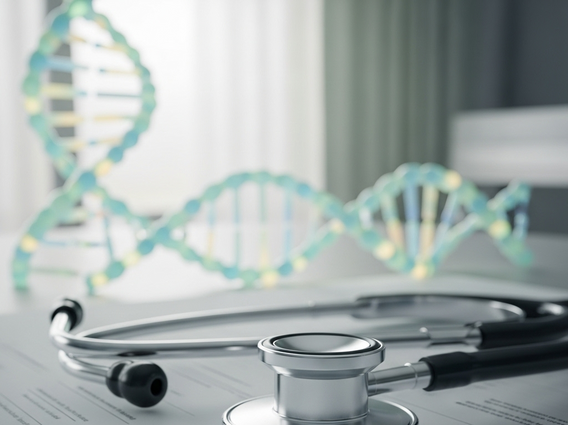Causes of Anxiety in Cancer Patients
A cancer diagnosis can be an overwhelming experience, bringing with it a cascade of emotions, with anxiety being one of the most prevalent and challenging. Understanding the multifaceted nature of anxiety in this context is crucial for providing comprehensive support and care.

Key Causes of Anxiety in Cancer Patients
- Initial shock and fear following diagnosis, including the psychological impact of cancer anxiety.
- Stress related to treatment procedures, side effects, and the uncertainty of outcomes.
- Emotional and psychological burdens such as fear of recurrence and body image changes.
- Social isolation, strained relationships, and significant financial pressures.
- Profound fears about the future, prognosis, and mortality.
Exploring the Core Causes of Anxiety in Cancer Patients
The journey through cancer often begins with a profound sense of shock and disbelief, immediately setting the stage for significant emotional distress. For many, the initial diagnosis itself is a primary trigger, unleashing a torrent of fears about the unknown, treatment efficacy, and the future. This immediate reaction is a critical component of what causes anxiety in cancer patients, as they grapple with a life-altering reality.
Understanding anxiety in cancer patients’ initial reactions.
Upon receiving a cancer diagnosis, individuals often experience a range of intense emotions, including fear, sadness, anger, and profound anxiety. This initial phase is characterized by an overwhelming sense of vulnerability and a loss of control. Patients may find themselves constantly replaying the news, struggling to process information, and anticipating the worst-case scenarios. This period is vital for understanding anxiety in cancer patients, as it lays the groundwork for subsequent emotional challenges. The sudden shift from a normal life to one dominated by medical appointments and health concerns can be disorienting, contributing significantly to their anxious state.
Psychological impact of cancer anxiety from diagnosis.
The psychological impact of cancer anxiety begins almost immediately after diagnosis. Patients often report symptoms such as persistent worry, restlessness, difficulty concentrating, and sleep disturbances. This anxiety is not merely a transient emotion but can evolve into a chronic condition, affecting their quality of life and ability to engage with treatment. The diagnosis can trigger existential crises, forcing individuals to confront their mortality and re-evaluate their life priorities. This profound psychological burden highlights why addressing anxiety from the outset is paramount for holistic cancer care.
- Fear of the unknown and what the future holds.
- Concerns about pain and suffering.
- Worry about the impact on family and loved ones.
- Loss of control over one’s body and life decisions.
- Difficulty processing complex medical information.
Treatment-Related Causes of Anxiety in Cancer Patients
Cancer treatment, while essential for recovery, often introduces its own set of challenges that can significantly heighten anxiety levels. The medical procedures, the side effects of therapies, and the constant cycle of appointments and waiting for results all contribute to the reasons for anxiety in cancer patients.
Anxiety triggers for cancer patients during therapy.
The treatment phase is replete with anxiety triggers for cancer patients. Regular hospital visits, invasive procedures like biopsies or chemotherapy infusions, and the sheer volume of medical information can be overwhelming. The waiting periods for scan results or pathology reports are particularly stressful, often referred to as “scanxiety.” Patients may also feel anxious about the effectiveness of their treatment, fearing that it might not work or that the cancer could return. The disruption to daily routines, coupled with the physical demands of treatment, further exacerbates these feelings of unease and apprehension.
Reasons for anxiety in cancer patients about side effects.
One of the most common reasons for anxiety in cancer patients revolves around the anticipated and experienced side effects of treatment. Chemotherapy, radiation, and surgery can lead to a wide array of physical changes, including nausea, fatigue, hair loss, pain, and neuropathy. Patients worry about how these side effects will impact their daily life, their appearance, and their ability to function independently. The fear of debilitating side effects can sometimes be as distressing as the fear of the disease itself, leading to significant psychological distress and affecting adherence to treatment plans.
Common treatment side effects that contribute to anxiety:
- Persistent fatigue and weakness.
- Nausea, vomiting, and appetite changes.
- Hair loss and other visible physical alterations.
- Pain, discomfort, and nerve damage.
- Cognitive changes, often referred to as “chemo brain.”
- Risk of infection due to weakened immune system.
The table below illustrates how different treatment modalities can contribute to specific anxiety triggers:
| Treatment Type | Common Anxiety Triggers | Potential Psychological Impact |
|---|---|---|
| Chemotherapy | Nausea, hair loss, fatigue, fear of infusion reactions | Body image concerns, loss of control, anticipatory anxiety |
| Radiation Therapy | Skin burns, localized pain, fatigue, fear of radiation exposure | Physical discomfort, fear of long-term effects, treatment adherence stress |
| Surgery | Pain, scarring, organ removal, anesthesia risks, recovery time | Body image changes, fear of complications, functional limitations |
| Immunotherapy | Unpredictable immune-related side effects, fear of treatment failure | Uncertainty, vigilance for new symptoms, hope vs. fear |
Emotional & Psychological Causes of Anxiety in Cancer Patients
Beyond the immediate medical aspects, cancer profoundly affects a patient’s emotional and psychological landscape. The long-term implications of the disease, even after successful treatment, can continue to fuel significant anxiety. This includes deep-seated fears about the cancer returning and changes to one’s self-perception.
Why do cancer patients feel anxious about recurrence?
A pervasive and often debilitating concern for cancer survivors is the fear of recurrence. Even after achieving remission, the thought that the cancer could return looms large, constantly reminding them of their vulnerability. This persistent worry explains why do cancer patients feel anxious long after active treatment has ended. Every ache, pain, or routine check-up can trigger intense anxiety, leading to hyper-vigilance about their body and health. This fear can significantly diminish their quality of life, making it difficult to fully embrace life post-treatment and move forward without constant apprehension.
Factors contributing to cancer patient anxiety from body image.
Cancer and its treatments can lead to significant physical changes that profoundly impact a patient’s body image. Surgeries may result in scars, amputations, or the removal of organs (e.g., mastectomy, colostomy). Chemotherapy often causes hair loss, weight fluctuations, and skin changes. These alterations can lead to feelings of disfigurement, loss of femininity or masculinity, and a diminished sense of self-worth. These factors contributing to cancer patient anxiety are not merely superficial; they strike at the core of an individual’s identity and can lead to social withdrawal, depression, and a reluctance to engage in intimate relationships.
- Visible scars from surgery.
- Hair loss due to chemotherapy.
- Weight changes (gain or loss).
- Loss of body parts or functions.
- Changes in skin texture or color from radiation.
Social & Financial Causes of Anxiety in Cancer Patients
Cancer does not only affect the individual; it ripples through their social and financial spheres, creating additional layers of stress and anxiety. The strain on relationships and the immense financial burden are significant contributors to the overall anxious state of patients.
What causes anxiety in cancer patients regarding support?
The social implications of a cancer diagnosis can be complex and challenging. Patients may experience feelings of isolation, even when surrounded by loved ones, as they feel others cannot truly understand their experience. There can be a shift in dynamics within families and friendships, with some relationships strengthening and others faltering under the pressure. Patients may worry about being a burden to their caregivers or feel guilty about the impact their illness has on their family’s life. Understanding what causes anxiety in cancer patients in this domain involves recognizing the fear of losing social connections, the struggle to maintain independence, and the difficulty in asking for help.
Reasons for anxiety in cancer patients due to financial stress.
The financial strain associated with cancer treatment is a major source of anxiety for many patients and their families. Medical bills can quickly accumulate, even with insurance, due to co-pays, deductibles, and non-covered services. Furthermore, the ability to work may be compromised due to treatment side effects or the need for frequent appointments, leading to a loss of income. This dual burden of rising expenses and reduced earnings creates significant financial stress, which is a key reason for anxiety in cancer patients. Worries about paying for housing, food, and other necessities can be overwhelming, diverting energy and focus away from recovery.
- High medical bills and insurance deductibles.
- Loss of income due to inability to work.
- Costs of transportation to appointments.
- Need for specialized equipment or home care.
- Impact on family’s financial stability and future.
Uncertainty & Future-Related Causes of Anxiety in Cancer Patients
Perhaps one of the most profound sources of anxiety for cancer patients stems from the inherent uncertainty surrounding their future. The disease forces individuals to confront their mortality and grapple with questions about prognosis, quality of life, and the very end of life.
Anxiety triggers for cancer patients about prognosis.
The ambiguity surrounding a cancer prognosis is a powerful anxiety trigger for cancer patients. While doctors can provide statistics and general outlooks, each patient’s journey is unique. The uncertainty about how long they will live, whether the treatment will be successful, or if they will experience a recurrence can be mentally exhausting. Patients often find themselves fixated on survival rates, constantly seeking information, and struggling to plan for a future that feels unpredictable. This constant state of ‘not knowing’ can lead to chronic worry and a diminished ability to enjoy the present moment.
Understanding anxiety in cancer patients’ fear of death.
For many, a cancer diagnosis brings the fear of death into sharp focus. This existential dread is a fundamental aspect of understanding anxiety in cancer patients. It encompasses not only the fear of dying itself but also concerns about the dying process, potential pain, and leaving loved ones behind. Patients may grapple with questions about their legacy, unfinished business, and the meaning of their life. This profound confrontation with mortality can be deeply unsettling and contribute to significant psychological distress, requiring sensitive and compassionate support.
- Fear of pain and suffering during the end-of-life phase.
- Worry about leaving family and friends.
- Concerns about unfinished life goals or experiences.
- Existential questions about the meaning of life and death.
- Anxiety about the unknown aspects of dying.
Addressing the Causes of Anxiety in Cancer Patients
Recognizing the diverse causes of anxiety in cancer patients is the first step toward effective management. A multi-faceted approach, combining medical, psychological, and social support, is essential to help patients navigate these challenging emotions and improve their overall well-being.
Managing factors contributing to cancer patient anxiety.
Effectively managing factors contributing to cancer patient anxiety involves a combination of professional support and personal strategies. Open communication with the medical team about fears and concerns can help demystify treatment and prognosis. Psychological interventions, such as cognitive-behavioral therapy (CBT) or mindfulness-based stress reduction, can equip patients with tools to cope with anxious thoughts. Support groups offer a safe space to share experiences and reduce feelings of isolation, fostering a sense of community and understanding. Addressing practical concerns, like financial counseling or social work support, can also alleviate significant stressors.
Psychological impact of cancer anxiety: coping strategies.
Coping with the psychological impact of cancer anxiety requires a proactive approach. Developing effective coping strategies can significantly improve a patient’s mental and emotional resilience. These strategies often include engaging in relaxation techniques like deep breathing or meditation, maintaining a healthy lifestyle with balanced nutrition and gentle exercise (as approved by their medical team), and pursuing hobbies or activities that bring joy and distraction. Professional psychological support, including counseling or therapy, plays a crucial role in helping patients process their emotions, develop coping skills, and address underlying anxieties. It’s important to remember that seeking help is a sign of strength, not weakness.
Effective coping strategies include:
- **Mindfulness and Meditation:** Practices that help focus on the present moment, reducing rumination about the past or future.
- **Regular, Gentle Exercise:** Physical activity can release endorphins, reduce stress hormones, and improve mood, always within medical guidelines.
- **Support Groups:** Connecting with others who share similar experiences can reduce feelings of isolation and provide practical advice.
- **Professional Counseling/Therapy:** A therapist can provide tools for managing anxiety, processing grief, and improving coping mechanisms.
- **Open Communication:** Discussing fears and concerns with family, friends, and the medical team can alleviate burdens.
- **Journaling:** Writing down thoughts and feelings can be a therapeutic way to process emotions and gain perspective.
Frequently Asked Questions About Anxiety in Cancer Patients
Is anxiety a normal part of having cancer?
Yes, experiencing anxiety is a very common and normal reaction to a cancer diagnosis and its treatment. The uncertainty, physical changes, and emotional toll of cancer can naturally lead to feelings of worry, fear, and apprehension. It’s important for patients to understand that these feelings are valid and widely shared among those facing similar challenges.
While normal, persistent or severe anxiety that interferes with daily life or treatment adherence should be addressed. Recognizing the normalcy of these feelings can help patients feel less alone and more open to seeking support.
How can family members help a cancer patient with anxiety?
Family members can provide invaluable support by offering a listening ear without judgment, validating the patient’s feelings, and helping with practical tasks. Encouraging open communication, attending appointments with them, and helping to manage household responsibilities can reduce stress. It’s also important for family members to educate themselves about the patient’s condition and treatment to better understand their experience and anticipate their needs. Encouraging professional help when needed is also crucial.
When should a cancer patient seek professional help for anxiety?
A cancer patient should seek professional help for anxiety if their symptoms are severe, persistent, or significantly interfere with their daily life, sleep, appetite, or ability to participate in treatment. Signs that professional help might be needed include panic attacks, constant worrying, extreme irritability, social withdrawal, or thoughts of self-harm. Oncologists can often refer patients to psycho-oncologists, therapists, or psychiatrists who specialize in cancer-related mental health.
Are there medications for cancer-related anxiety?
Yes, there are medications that can help manage cancer-related anxiety, often prescribed in conjunction with therapy. These may include anti-anxiety medications (anxiolytics) or antidepressants, depending on the specific symptoms and patient’s overall health. The choice of medication is always made in consultation with the patient’s medical team, considering potential interactions with cancer treatments and other health conditions. Medication can provide relief from severe symptoms, allowing patients to engage more effectively in other coping strategies.
Can lifestyle changes reduce anxiety in cancer patients?
Absolutely. While not a replacement for medical or psychological treatment, certain lifestyle changes can significantly help reduce anxiety in cancer patients. These include engaging in regular, gentle physical activity (as approved by their doctor), maintaining a balanced and nutritious diet, ensuring adequate sleep, and practicing relaxation techniques like deep breathing, meditation, or yoga. Limiting caffeine and alcohol intake can also be beneficial. These changes can improve overall well-being, boost mood, and enhance the body’s ability to cope with stress.






Warning: Undefined variable $aria_req in /var/www/html/wp-content/themes/Impreza-child/comments.php on line 51
Warning: Undefined variable $aria_req in /var/www/html/wp-content/themes/Impreza-child/comments.php on line 56
Warning: Undefined variable $aria_req in /var/www/html/wp-content/themes/Impreza-child/comments.php on line 67
Warning: Undefined variable $aria_req in /var/www/html/wp-content/themes/Impreza-child/comments.php on line 70
Warning: Undefined variable $aria_req in /var/www/html/wp-content/themes/Impreza-child/comments.php on line 73